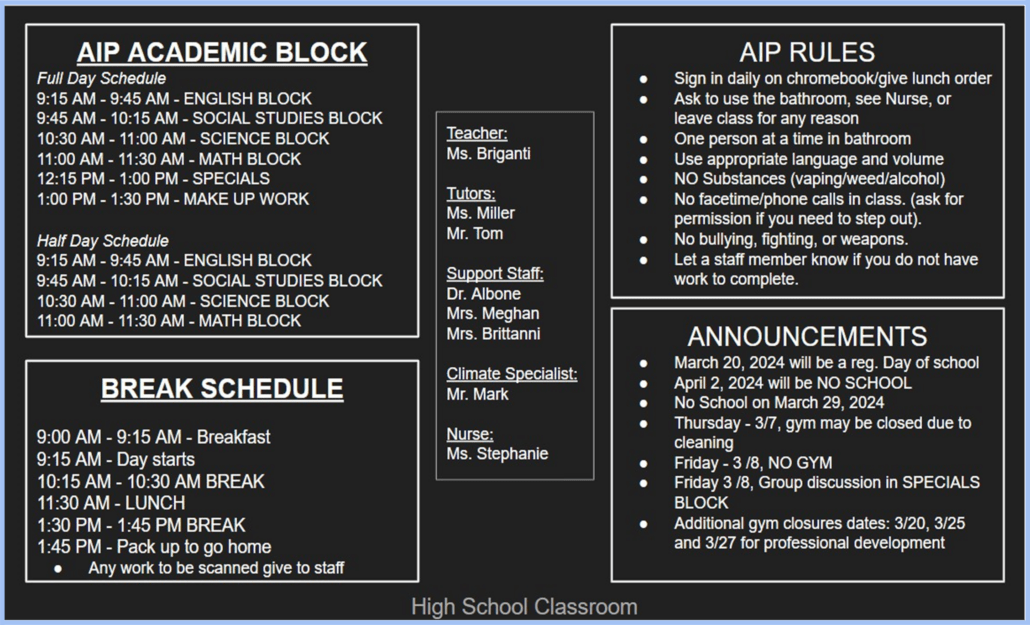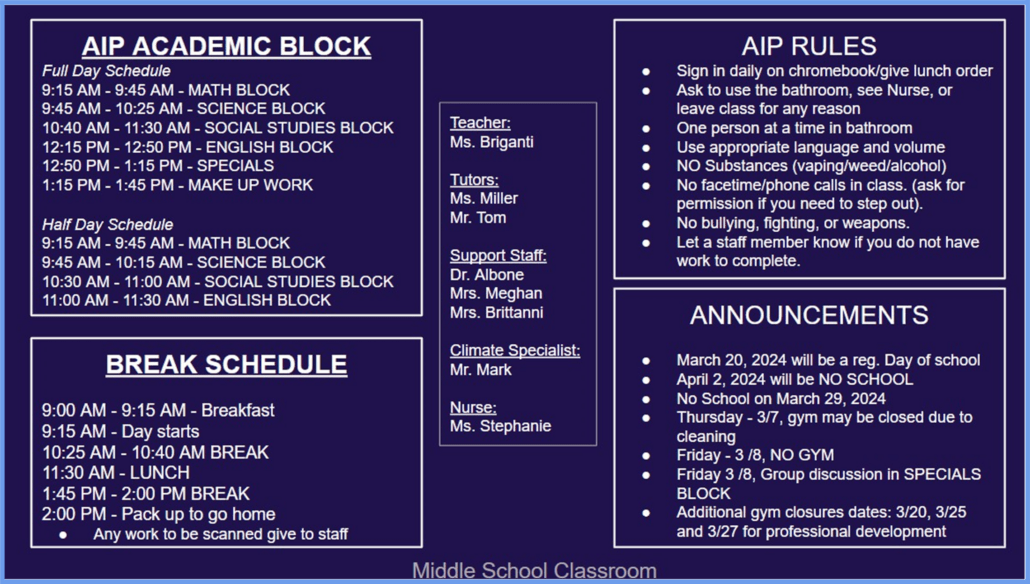INCLUDE | ENGAGE | INSPIRE
Sources: State of Connecticut; Stratford Board of Education Annual Report; Acting Superintendent Heather Borges
By Barbara Heimlich
Editor
The most contentious subject during the Town of Stratford budget hearings and vote was the fate of ALPHA.
The ALPHA program is an extension of our high schools, designed to provide more intense and personal support to high school students who have difficulty navigating conventional high school. The program has been around for over thirty years. It typically cared for about 20 students, but because of increased demand it has slowly expanded and now has an enrollment of between 38 and 41 students. If the ALPHA program is discontinued, the students will be out-placed.
A supporter of ALPHA, Councilman Alvin O’Neil stated following the budget vote that his understanding as he was meeting with ALPHA and the Board of Education is that there would be no cuts in the programs and services with respect to support for each child in the program. “I’m told that they may call the Alpha program by another name, but was guaranteed that the children would not be impacted. They actually said they will create some things that will enhance the program. I will be monitoring this to make sure they live up to what I was told. If they do not, I will be very vocal and will remember this at the next budget.”
The next budget may be too late! There are “rumors” that ALPHA is going to be folded into AIP (Alternative Instructional Placement).
What Is AIP?
In 2023, the Stratford Board of Education Report noted that the school system created AIP:
- Creating the Alternative Instructional Placement (AIP) Initiative.
For the 2023-24 school year, Stratford Public Schools will open a multi-educational program at the old Honeyspot School building. This program will provide structure and support to a variety of learners through robust offerings and resources. The program will service expulsion students, and chronic out-of-school suspended students. The facility will also house our Project Uplift, Homebound Tutoring, and Continuing Education programs.
Project Uplift, is a program designed to reduce school violence by addressing specific factors affecting Stratford Public Schools students: interpersonal skills deficits, background/current experiences of trauma, and a local juvenile justice system, which has evolved away from juvenile court interventions but has not yet replaced them with an effective, restorative strategy.
Primary Activities:
Project Uplift consists of three main strategies, all evidence-based:
1) A multidisciplinary intervention team that both responds to actual or potentially violent incidents in schools, and monitors the schools’ data related to violence.
2) Training staff teams from all four buildings in trauma-informed instruction and climate.
3) Training staff teams from all four buildings in Restorative Practice
Services Provided by The Project Uplift Team
| Titles: |
| Special Education Teacher |
| School Psychologist (Project Uplift Team) |
| Social Worker (Project Uplift Team) |
| School Counselor (Project Uplift Team) |
| Homebound Tutor |
| AIP Tutor |
| Climate Specialist |
| Nurse |
Project Uplift is a grant program that assists students in restorative practices, attendance, grades, and substance abuse. The Project Uplift members are listed above. All students who attend AIP will be assigned to the Project Uplift Team and their services.
A restorative reflection (e.g., for those expelled or suspended) will be required to return back to school and will be worked on with the Project Uplift team. The reflection will be reviewed by a home school administrator prior to the student returning to class.
Counseling services are provided as needed. Restorative practices are used to assist students in areas of behavioral concerns. Counseling services can range from a quick check-in to daily 60-minute counseling.
A 30-minute lesson of the COPE curriculum may be provided for social-emotional learning weekly to help develop a positive mindset with problem-solving skills, and the Project Uplift Team and/or AIP special education teacher will communicate to parents as needed while the student is in attendance at AIP.
Homebound Tutoring
It is the policy of the Board of Education to provide homebound instruction to students who are expected to be absent for more than 15 (fifteen) school days for the continuity of a student’s education.
Continuing Education
AIP has complete academic work with support staff and/or independently. There is one Special Education teacher who assists students by teaching the assignments and provides accommodations/and or modifications (i.e, per IEP or 504). Additionally, there are two tutors to assist the students with academic support.
AIP classroom instruction guidelines follow:
High School:

Middle School:

At his time AIP and ALPHA are under review to develop a program that will benefit all students and parents.
These changes will all have to adhere to State of Connecticut standards for Alternative Educational Opportunities which can be found at:
Guiding Principles: State of Connecticut
Consistent with the Guidelines for Alternative Education Settings, these standards are grounded in the conviction that alternative educational opportunities for students who have been expelled should exhibit the following characteristics:
- whole student approach that addresses the personal, social, emotional, intellectual, work skills, safety, and security needs of all students in addition to academic content (including the Connecticut Core Standards4);
- full time, comprehensive experience, where the learning is comparable to what the student would experience in a regular school environment;
- instruction that is based on a curriculum aligned to the Connecticut Core Standards unless modified as indicated by goals and objectives of an Individualized Education Program (IEP);
- high expectations that are consistent with LEA goals and Connecticut state standards including the belief that all students are capable and can be successful regardless of their discipline history; and
- research/evidence-based practices with student success in mind, including the engagement of parents/guardians and families as well as community partners, as appropriate.
These principles are unlikely to be satisfied by assignment to homebound instruction.
Connecticut’s Core Standards
Alternative Placement is a disciplinary measure used in most public and charter schools to provide an alternative learning environment to a student who is struggling in a traditional school setting due to behavioral extremes. Through an in-depth process including observations, assessments, and district-level input, a student can be removed temporarily from their school and assigned to an alternative program that school administrators feel would benefit the academic growth of the student.
As a form of exclusionary discipline, alternative placement is reserved for students with severe behavioral issues including repeated offenses of bullying, violence, and other serious code of conduct violations. General education students as well as students with special needs can be removed from their classroom and designated to an alternative program as deemed necessary by the district.
Regardless of whether or not a student has an IEP, when opting for alternative placement, the school should evaluate the circumstances that led up to the student being recommended for alternative placement to determine whether an alternative placement is appropriate. In addition, when recommending an alternative placement for a student with an IEP, the team should consider if the student’s unique needs could be met in the recommended setting.
An IEP is a written statement of the educational program designed to meet a child’s individual needs. Every child who receives special education and related services must have an IEP.

